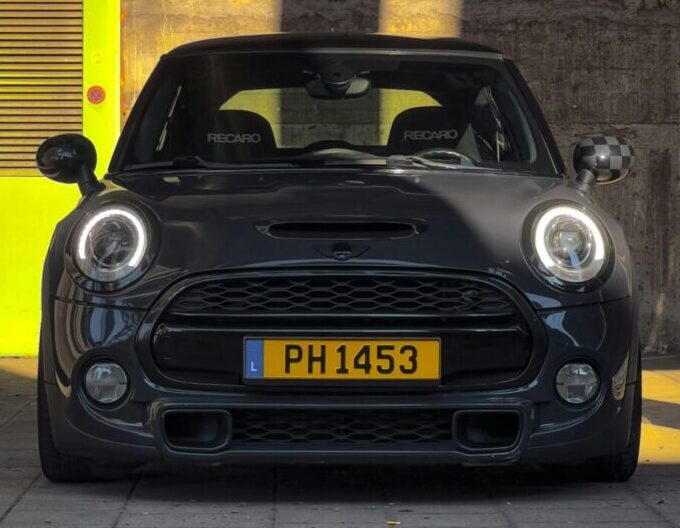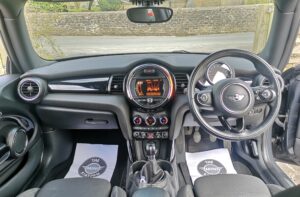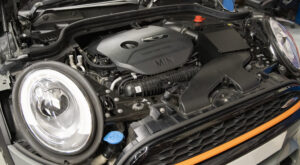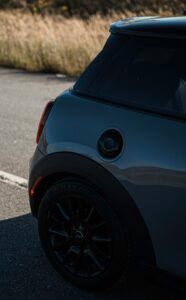Mini Cooper F56: What You need to know before buying. Part two
2. It’s longer, but you don’t get any more interior space
3. You get punchy, BMW-supplied engines
4. The JCW is susceptible to tyre choice
Electrical issues are rare
What you need to know before buying Mini Cooper F56. Part two. The Mini Cooper F56 is known for being a relatively reliable car in terms of its electrical components. Compared to some other vehicles, it tends to have fewer electrical problems reported by owners and mechanics. However, it’s essential to keep in mind that like any modern car, electrical issues can still occur due to various factors.
Here are some key points to consider regarding electrical issues in the Mini Cooper F56:
- Software Updates: Mini Coopers often rely on sophisticated software systems to manage various functions. Keeping the software up to date can help prevent software-related glitches and electrical malfunctions.
- Connectivity: Many Mini Coopers come equipped with advanced infotainment and connectivity features. Issues with Bluetooth, navigation systems, or multimedia interfaces can sometimes occur and may require troubleshooting.
- Sensor and Control Units: The Mini Cooper F56 uses numerous sensors and control units to monitor and manage various systems. Faulty sensors or control modules can occasionally lead to electrical faults.
- Wiring and Connections: Over time, wiring and electrical connections can degrade or become loose, especially in older vehicles or those subjected to harsh conditions. Regular inspections can help identify and address potential issues.
- Alternator Performance: The alternator is responsible for charging the battery and powering the electrical system while the engine is running. A malfunctioning alternator can result in electrical problems.
Despite these potential areas of concern, it’s worth noting that many Mini Cooper F56 owners experience few to no electrical issues during their ownership.
It’s longer, but you don’t get any more interior space
The Mini Cooper F56 did undergo some dimensional changes compared to its predecessors, particularly in length. However, the primary focus of these changes was often related to aesthetics, handling, and potentially accommodating updated mechanical components rather than significantly expanding interior room.
In practical terms, the interior space in the Mini Cooper F56 remains relatively consistent with previous Mini models. The rear seating area, in particular, can still be quite snug, and taller passengers may find headroom limited, especially in the back seats.
While the longer body of the F56 might suggest increased interior space, the reality is that the Mini Cooper maintains its compact dimensions and characteristic design ethos, prioritizing a sporty, agile driving experience over maximizing passenger space.
Therefore, while the Mini Cooper F56 is indeed longer than its predecessors, prospective buyers should not expect a substantial increase in interior room compared to earlier Mini models. The emphasis remains on style, performance, and the unique driving dynamics that Minis are renowned for, rather than on maximizing cabin space.
You get punchy, BMW-supplied engines
The Mini Cooper F56 is known for offering punchy and responsive engines that are supplied by BMW, the parent company of Mini. These engines are typically well-regarded for their power delivery, efficiency, and overall performance characteristics.
Here are some key points about the engines in the Mini Cooper F56:
- Engine Options: The Mini Cooper F56 is available with a range of engine options, including turbocharged three-cylinder and four-cylinder engines. These engines are designed to deliver a balance of power and fuel efficiency.
- Turbocharged Performance: Many versions of the Mini Cooper F56 come equipped with turbocharged engines, which provide strong low-end torque and spirited acceleration. This turbocharging enhances the driving experience by delivering responsive power delivery across a wide range of engine speeds.
- BMW Engineering: As part of the BMW Group, Mini benefits from BMW’s engineering expertise in developing high-performance engines. The engines in the Mini Cooper F56 reflect BMW’s commitment to delivering enjoyable and dynamic driving experiences.
- Variety of Power Levels: Depending on the specific trim and model variant, the Mini Cooper F56 offers different power outputs to suit varying preferences and driving styles. This allows customers to choose an engine that best matches their performance expectations.
-
Sporty Driving Dynamics: The punchy engines in the Mini Cooper F56 contribute to its sporty driving dynamics. Combined with the car’s agile handling and responsive steering, these engines make the F56 a fun-to-drive compact car.
The JCW is susceptible to tyre choice
Choosing the right tires for the Mini Cooper F56 JCW is crucial to fully experience its capabilities. High-performance tires with good grip and handling characteristics are recommended to complement the JCW’s sporty suspension and powerful engine.
Conversely, using tires that are not well-suited to the JCW’s performance requirements can adversely affect handling, traction, and overall driving experience. It’s essential for JCW owners to select tires that match the car’s performance capabilities and driving style.
Are you already a proud owner of a Mini Cooper F56? If so, check out our selection of parts for this car at the following link:
https://octoclassic.com/product-category/mini/f56
Photos sources: theministation.co.uk, sites.unimi.it











